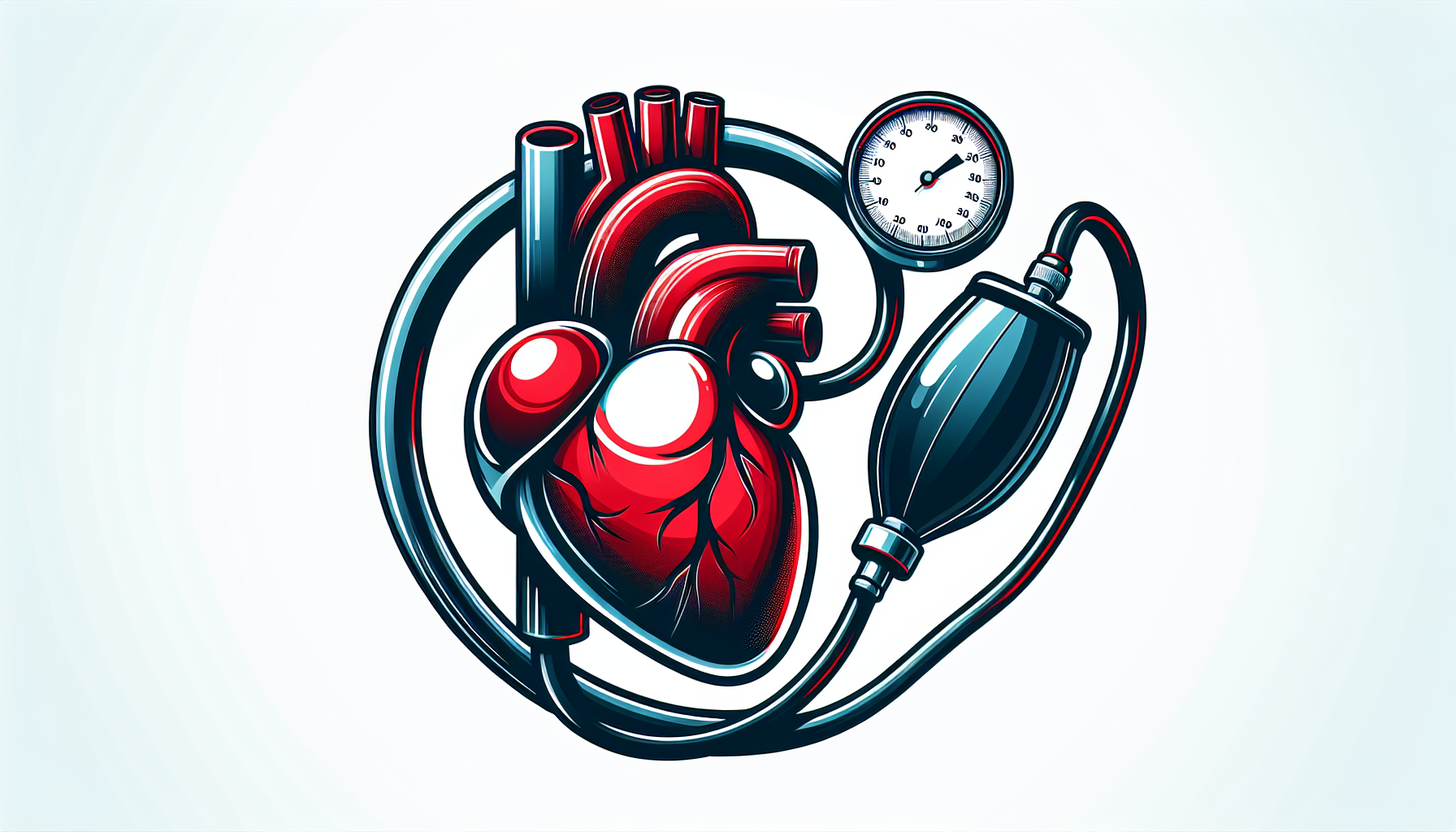High blood pressure, also known as hypertension, is a common condition where the long-term force of the blood against your artery walls is high enough that it may eventually cause health problems, such as heart disease. Managing high blood pressure is crucial for maintaining heart health and reducing the risk of heart attacks, strokes, and other complications.
Understanding Blood Pressure and Its Impact
Blood pressure is measured in millimeters of mercury (mmHg) and recorded with two numbers. The top number, systolic pressure, measures the pressure in your arteries when your heart beats. The bottom number, diastolic pressure, measures the pressure in your arteries when your heart rests between beats. A normal blood pressure level is less than 120/80 mmHg.
When blood pressure is high, it puts extra strain on your arteries and heart. Over time, this strain can cause the arteries to become thicker and less flexible, or to become weakened. If your arteries become thicker and less flexible, they will become narrower, making them more likely to become clogged up. If an artery becomes completely clogged, it can lead to a heart attack, stroke, or other serious issues.
For those interested in a broader understanding of cardiovascular health, our comprehensive guide on Cardiovascular Health offers a wealth of information.
Lifestyle Changes to Manage High Blood Pressure
The good news is that high blood pressure can often be managed and reduced through lifestyle changes. Here are some key strategies:
Regular Physical Activity
Exercise is one of the most effective ways to lower blood pressure. Regular physical activity makes your heart stronger, meaning it can pump more blood with less effort and put less pressure on your arteries. The American Heart Association recommends 150 minutes of moderate exercise, such as walking, or 75 minutes of vigorous exercise, such as running, every week.
Healthful Eating
A heart-healthy diet is vital for managing blood pressure. This includes eating plenty of fruits, vegetables, whole grains, and lean proteins such as fish. Limiting certain substances is also important, such as salt, added sugars, and trans fats.
Maintaining a Healthy Weight
Being overweight can increase your risk for high blood pressure. Achieving and maintaining a healthy weight can help regulate blood pressure and reduce the risk of additional health problems.
Moderation of Alcohol Intake
Drinking alcohol can raise your blood pressure, even if you’re healthy. It’s important to drink in moderation — generally, no more than one drink a day for women, or two a day for men.
Smoking Cessation
Smoking increases blood pressure and puts you at higher risk for heart attack and stroke. Quitting can help your blood pressure return to normal.
For those looking to dive deeper into maintaining a heart-healthy diet, our article on How to Maintain a Heart-Healthy Diet provides actionable insights and detailed guidance.
Medical Management of High Blood Pressure
In some cases, lifestyle changes alone are not enough to manage high blood pressure. Medications may be necessary to help lower blood pressure. There are many types of blood pressure medications, and sometimes a combination of different types is most effective. It’s important to work closely with your healthcare provider to find the right medication and dosage for you.
Monitoring Your Blood Pressure
Regular monitoring can help you keep tabs on your blood pressure and its response to lifestyle changes or medication. Home blood pressure monitors are widely available and can be a useful tool for those managing hypertension.
The Role of Stress and Mental Health
Stress and mental health play a significant role in hypertension. Chronic stress can contribute to high blood pressure, as well as other heart-related issues. Managing stress through relaxation techniques, such as deep breathing, meditation, or yoga, can be beneficial.
For insights on the connection between stress and heart health, consider reading our detailed article on The Impact of Stress on Your Heart.
Seeking Further Information and Support
High blood pressure is a complex condition that can require a multifaceted approach to manage effectively. For those looking for additional support and information, the following external resources can be incredibly valuable:
- Blood Pressure UK provides extensive information on understanding and managing high blood pressure.
- American Heart Association offers a range of materials on heart health and blood pressure management.
- The Mayo Clinic has detailed guides on lifestyle changes and medical treatments for hypertension.
By educating yourself on the causes and treatments of high blood pressure, making lifestyle changes, and working with healthcare professionals, you can take significant steps toward managing your blood pressure and improving your heart health. Remember, managing high blood pressure is a lifelong commitment that involves daily decisions to live a healthier life.



